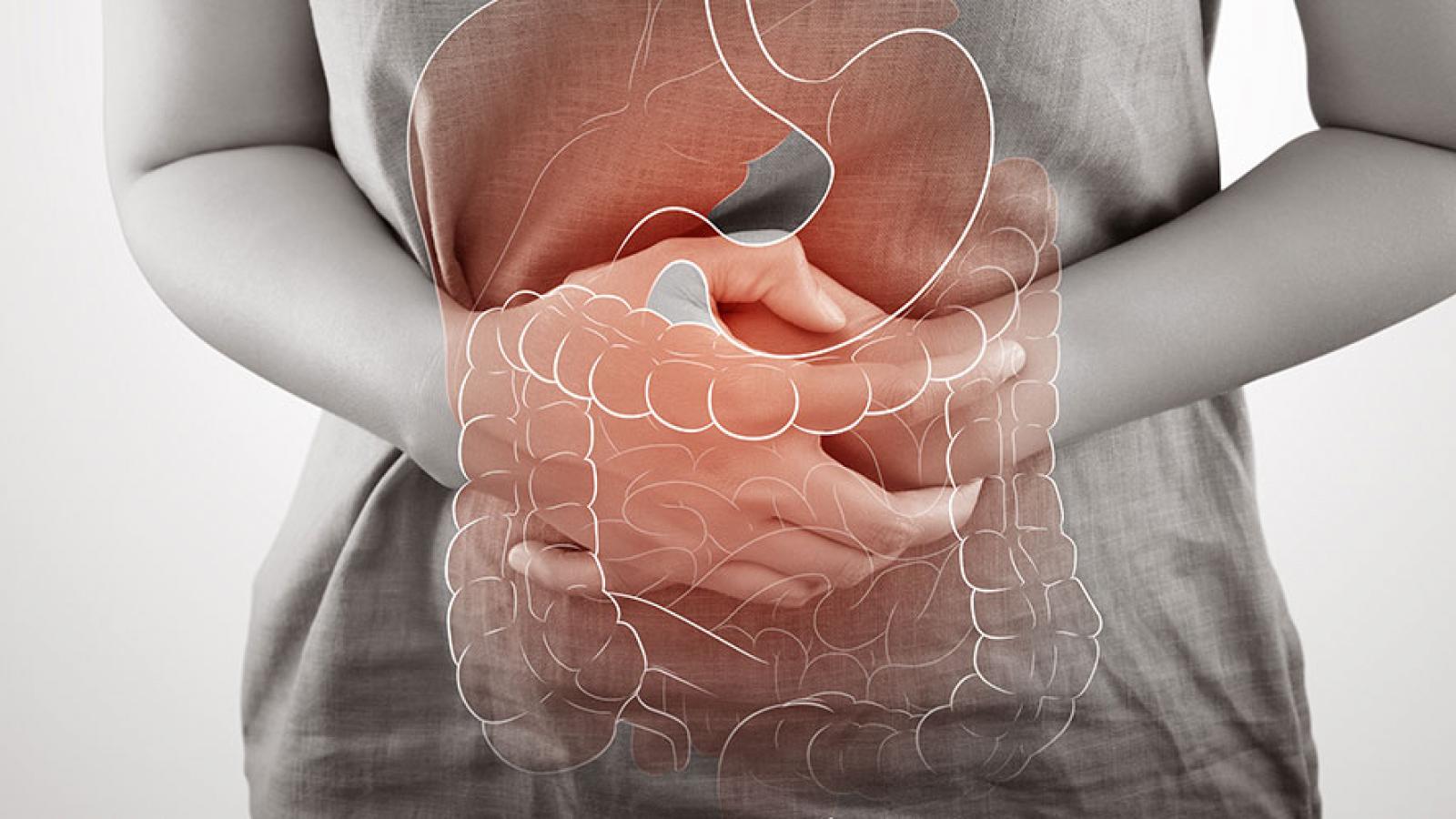IBD

As an inflammatory bowel disease specialist, Dr. Anju Mathur uses her “Back to Wellness Program” to provide effective solutions for patients suffering from inflammatory bowel disease.
Inflammatory bowel disease encompasses a wide number of gastrointestinal complaints. Crohn’s disease and ulcerative colitis are both autoimmune conditions that are classified as inflammatory bowel diseases. They are the most common bowel conditions we treat at Angel Longevity Medical Center.
What causes IBD?
Crohn’s disease and ulcerative colitis are autoimmune diseases. In both cases, the body mistakes healthy tissue in the intestinal tract for foreign tissue and attacks the lining, causing chronic inflammation.
As with most autoimmune disorders, the underlying cause of IBD is linked to certain triggers that enable a scenario in which the body begins to attack itself. These triggers can include:
- Food allergies
- High sugar diet
- Low fiber intake
- Parasites
- Heavy metal toxicity
- Stress
- Overuse of antibiotics
- Anti-depressants
- Prescription medications
Ulcerative colitis vs. Crohn’s disease: What’s the difference?
Ulcerative colitis and Crohn’s disease share many symptoms, including:
- Lower right side abdominal pain and tenderness in Crohn’s disease
- Lower left side abdominal pain and tenderness in ulcerative colitis
- Bloody stools
- Diarrhea
- Constipation
- Mucus in stools
- Joint pain
- Fever
- Colon disfigurement
- Mouth ulcers
- Rectal pain
- Weight loss
- Anorexia
- Headaches
- Chronic fatigue
- Failure to thrive in children
Although ulcerative colitis and Crohn’s disease are both forms of IBD, involve inflammation of the digestive tract, and share many symptoms, there are some key differences. The main distinction between the two is the location of the disease and the nature of the inflammation. Here is a closer look at the two conditions:
Ulcerative colitis
In ulcerative colitis, only the large intestine and rectum are affected, and the ulcers usually appear on the surface of the intestinal tract. The symptoms of ulcerative colitis can vary, and they may share some of the same symptoms as Crohn’s disease.
Some of the primary signs include:
- Abdominal pain
- Periodic diarrhea
- Loose stool
- Weight loss
- Loss of appetite
- Fever
- Rectal bleeding
- Anemia
- Nausea
- Loss of bodily fluids
There are four main types of ulcerative colitis, depending on where the inflammation is located:
Ulcerative proctitis
This form of UC is only located in in the rectum. The condition is characterized by rectal pain, bleeding, and a sense of urgency before passing stool.
Proctosigmoiditis
Proctosigmoiditis involves passing bloody stool, a constant urge to defecate, and pain in the lower left side of the abdomen.
Left-sided colitis
When the inflammation primarily attacks the left side of the intestine, people usually experience weight loss, pain on the left side of the abdomen, loss of appetite, and bloody diarrhea.
Pan-ulcerative colitis
Pan-ulcerative colitis affects the entire large intestine. With this condition, people usually experience bloody diarrhea, severe abdominal pain, loss of appetite, and weight loss.
Crohn’s disease
The condition can develop quite suddenly, and it can affect any part of the digestive tract. Crohn’s disease can impact many layers of the intestines and isn’t confined to the surface of the intestinal lining, as in ulcerative colitis.
Some people with Crohn’s disease can go into remission for short periods of time without experiencing any flare-ups. However, most people experience persistent fatigue, fever, and diarrhea during their flare-ups.
Most commonly, the inflammation associated with Crohn’s disease occurs in the ileum and the first part of the colon, which leads to primary symptoms that include:
- Diarrhea
- Cramping
- Abdominal pain
When the inflammation is in the stomach and the first part of the small intestine, symptoms may include nausea, weight loss, and a poor appetite. Complications can include the formation of scar tissue and intestinal obstruction.
Our holistic treatment approach
The bottom line with IBD and autoimmune diseases that affect the bowels is to get to the root cause of the inflammation and resolve it. Ulcerative colitis and Crohn’s expert, Dr. Anju Mathur is a integrative medicine specialist.
Her holistic approach is designed to get to the root of a health problem and set forth a treatment protocol that will lead to successfully improving her patient’s wellbeing. Dr. Mathur provides extensive testing that analyzes the functioning of multiple different bodily systems that include the gastrointestinal, immune, and hormonal systems.
As a part of the “Back to Wellness Program,” Dr. Mathur also performs a full analysis on a patient’s dietary, stress, work, and lifestyle habits in an attempt to determine the root causes of bowel inflammation. She can also help to identify allergens, toxins, and specific foods that are aggravating existing bowel conditions. Her individualized healing programs can be customized to suit individual needs, which can allow patients to regain healthy digestive functions and reduce bowel inflammation.
The IBD treatment experience What to expect
In Dr. Mathur’s comprehensive healing programs, several therapies can be used to improve IBD. In general, she will recommend IV therapy, phospholipid exchange therapy, chelation therapy and ultraviolet blood irradiation.
- IV nutrient infusions can improve immune function through allowing the body to receive high amounts of nutrients.
- Chelation therapy may remove toxic heavy metals to allow the organs to function on a better level.
- Phospholipid exchange therapy can remove toxins at a cellular level and may improve the symptoms of Crohn’s and ulcerative colitis.
- Ultraviolet blood irradiation may help to energize the body and boost immune function.
Inflammatory bowel disease physician, Dr. Anju Mathur, has helped countless men and women regain their health through customized “Back to Wellness Programs.” Her integrative approach relieves gastrointestinal inflammation and restores optimal wellness. To learn more about overcoming the symptoms that are associated with IBD, please call Dr. Mathur at (818) 961-2055 for a complimentary phone consultation and to schedule an appointment.




